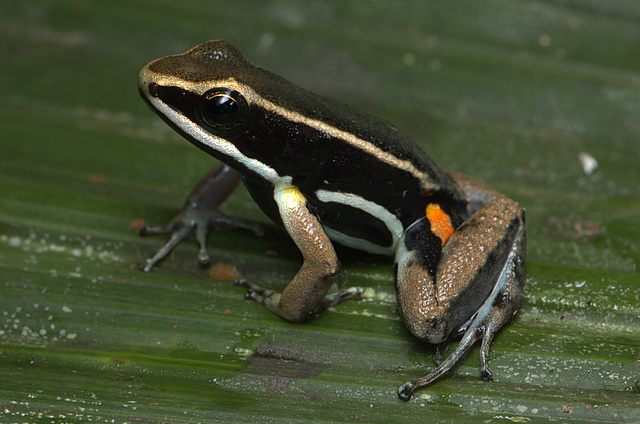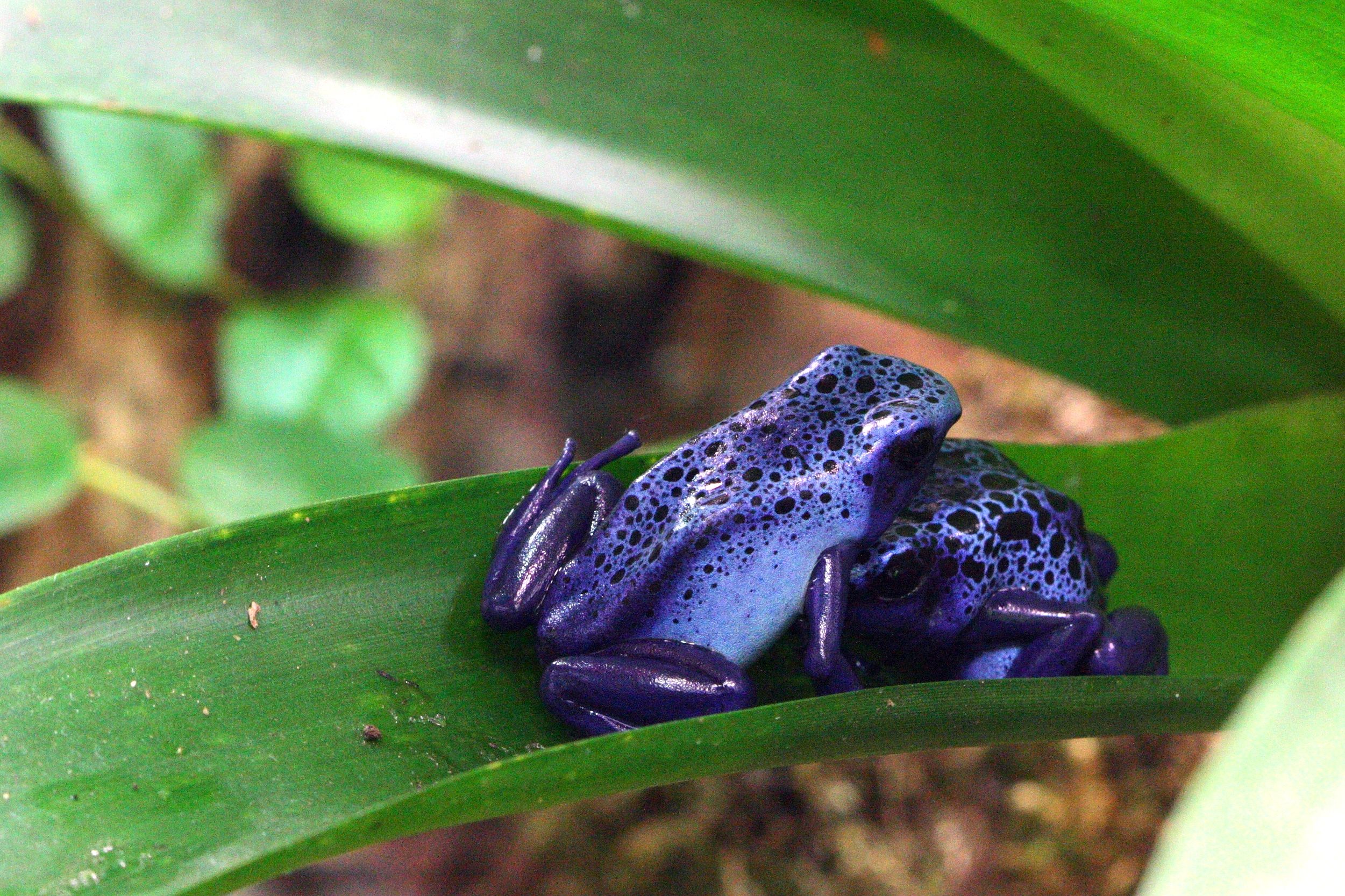Poison Frogs Make Surprisingly Attentive Adoptive Parents
No genetic connection required.

We never talk about how sensitive poison frogs can be. It might be the name—who among us would choose to have our most toxic traits advertised so baldly? Poison frogs, for example, are very seldom described as cuddly, caring, or considerate. But when it comes to their young, they’re all three. The amphibians are remarkably thoughtful parents, who ferry their tadpole offspring around on their backs with sticky mucus. The parents take the tadpoles to various rain forest pools to help them grow and develop.
New research, from the University of Veterinary Medicine, Vienna, and Harvard University, indicates an especially strong nurturing streak. When unrelated, “foster” tadpoles are placed on the backs of adult brilliant-thighed poison frogs, their parental instincts kick in, and they take the foundlings to exactly the same pools as they would their own babies. More than that, having tadpoles on their backs seems to trigger some kind of memory—a madeleine that guides them back to the pools of their own infancy. “The adult poison frogs don’t just march off,” researcher Andrius Pašukonis said in a release, “the touching also stimulates memories of distant pool locations in the forest.”
Scientists have mostly focused on parenting “triggers” in birds and mammals. This is one of the first forays into frog foster parent behavior. Researchers tracked the movements of the foster parents with tiny transponders, which also showed that even female frogs, who do not usually take on a piggybacking role, assume this parental duty when tadpoles are placed on their backs.

It’s tempting to imagine that the frogs carry some sense of parental duty, but researchers think it is more likely the tadpoles simply prompted some as-yet-unknown mechanism and instinct kicked in. “These findings are interesting, as they show how one stimulus can trigger such complex behavior,” added Pašukonis. Does that make the behavior any less endearing?
















Follow us on Twitter to get the latest on the world's hidden wonders.
Like us on Facebook to get the latest on the world's hidden wonders.
Follow us on Twitter Like us on Facebook